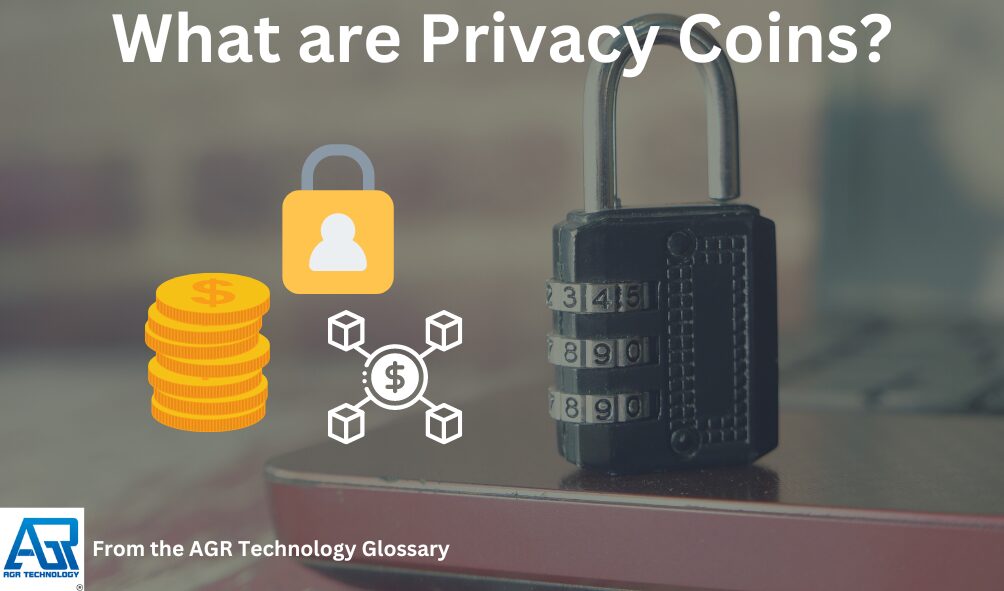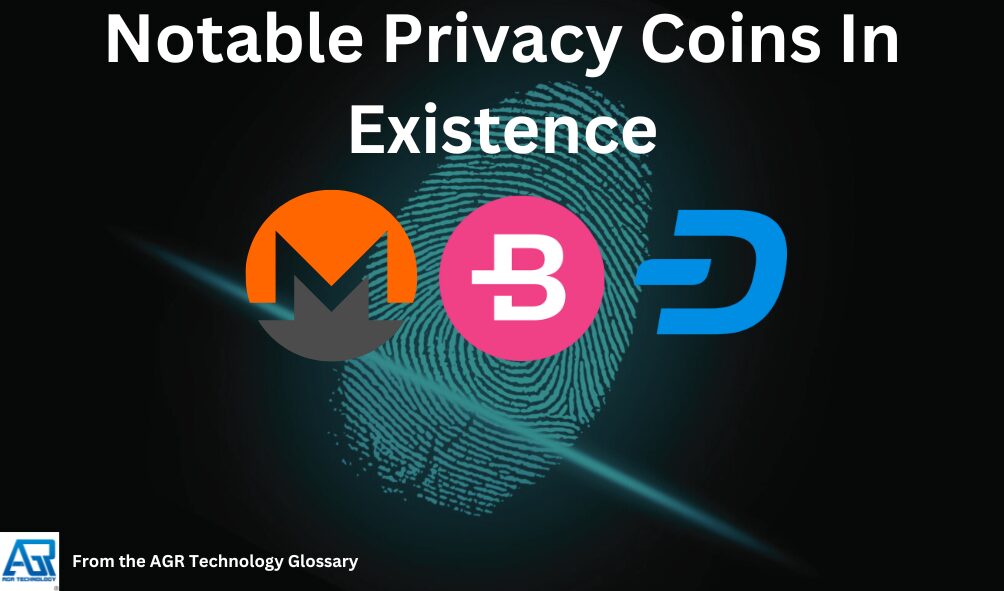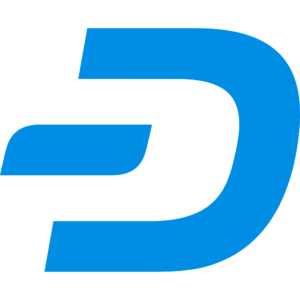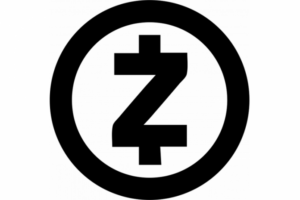Introduction – What are Privacy Coins?

Privacy coins are a type of cryptocurrency that aims to improve user anonymity and transaction privacy on blockchain networks. Unlike traditional cryptocurrencies like Bitcoin, which maintain a public log of transactions, privacy coins use advanced cryptographic techniques to conceal sender and receiver identities as well as transaction values. Monero, Zcash, and Dash are examples of privacy coins. By utilizing features such as ring signatures, stealth addresses, and zero-knowledge proofs, these digital currencies aim to promote user secrecy.
Many privacy coins can be purchased from popular Cryptocurrency exchanges globally such as Crypto trading apps in New Zealand, Software to trade Crypto in Taiwan, Hong Kong Crypto buying/selling apps, Crypto exchanges in the UAE/Dubai and Crypto buying platforms in Norway which enable end-users to easily purchase their preferred coins like Altcoins including many others that are available that use traditional Blockchains and can help you choose the best cryptocurrency to buy.
The purpose is to provide users with greater financial privacy, making it difficult for third parties to trace or analyze transactions. Individuals desiring improved confidentiality in their financial activities inside the decentralized realm of cryptocurrencies might use privacy coins.
Purpose and Importance in Cryptocurrency
By addressing the privacy vulnerabilities inherent in standard transparent blockchain networks, privacy coins play an important role in the cryptocurrency ecosystem. The main goal of privacy coins is to provide users with increased confidentiality and anonymity in their financial transactions. These currencies aim to shield user identities and transaction details from public scrutiny by utilizing powerful cryptographic techniques and privacy-focused protocols. This increased anonymity is especially essential because it aligns with the bitcoin movement’s core goals of decentralization and financial autonomy. Privacy coins play an important role in empowering individuals with greater control over their financial privacy, encouraging trust, and broadening the use cases for cryptocurrencies in a world where personal data and financial information are increasingly at risk of surveillance.
Some background history

The concept of privacy coins arose in response to the open nature of early cryptocurrencies such as Bitcoin, where transaction information were publicly available on the blockchain. The desire for increased financial privacy prompted the creation of privacy-focused digital currencies. Bytecoin, one of the first privacy coins, was established in 2012 with a focus on transaction anonymity. Following projects, like as Monero and Dash, refined and extended on privacy features, introducing innovations such as ring signatures and CoinJoin. Zcash, which debuted in 2016, pioneered zero-knowledge proofs via zk-SNARKs, allowing users to conceal transaction information while still validating their legitimacy. These developments signified a fundamental shift in the bitcoin space, allowing users to perform secret and secure transactions.
Notable Privacy Coins

Monero (XMR)

Monero is a cryptocurrency that obfuscates transactions for anonymity and fungibility using a blockchain with privacy-enhancing technologies. It is open source and built upon the idea of CryptoNote, which Nicolas van Saberhagen outlined in a 2013 white paper. A miner network using RandomX, a proof-of-work algorithm built to withstand ASIC mining, validates transactions. Cypherpunks and consumers looking for privacy characteristics not available in other cryptocurrencies are drawn to Monero’s privacy features. Rewards have been announced by the US Internal Revenue Service for contractors working on Monero-tracing technologies.
Monero’s origins can be traced back to CryptoNote, a cryptocurrency technology outlined in a white paper published in October 2013 by Nicolas van Saberhagen (presumed pseudonymous). The author considered bitcoin’s traceability a “critical flaw” and described privacy and anonymity as “the most important aspects of electronic cash.”The Bitcointalk forum user “thankful_for_today” coded these concepts into BitMonero, a cryptocurrency. Other forum users disagreed with thankful_for_today’s BitMonero direction and forked it in 2014 to form Monero. In Esperanto, monero means coin. Van Saberhagen and thankful_for_today both prefer to remain anonymous.
Monero is the third-largest developer community, trailing behind only bitcoin and Ethereum. Previously, South African developer Riccardo Spagni was the protocol’s chief maintainer. The majority of the core development team prefers to stay unknown.
Animated gif image to showcase the flooding process
In comparison to bitcoin, Monero is a decentralized ledger with a focus on privacy and anonymity, obscuring all transaction data. Monero has a devoted following among crypto anarchists, cypherpunks, and privacy activists as a result of this. Ring signatures obscure transaction outputs, and encryption began in 2017 with ring confidential transactions (RingCTs). Monero beneficiaries are safeguarded by “stealth addresses,” which are untraceable by network watchers. The network enforces these privacy protections by default.
Monero employs Dandelion++, a technology that masks the IP address of devices that generate transactions via transaction broadcast propagation. New transactions are initially sent to one node on Monero’s peer-to-peer network, and a repeating probabilistic algorithm determines whether the transaction should be routed to a single node or broadcast to a large number of nodes in a process known as flooding.
Monero, a cryptocurrency, replaces CryptoNightR as its proof-of-work algorithm in November 2019. Monero, which is designed to withstand ASIC mining, can be mined efficiently on consumer-grade hardware such as x86, x86-64, ARM, and GPUs. This decision seeks to oppose mining centralization by attracting malware-based non-consensual miners.
Dash

Dash is an open-source cryptocurrency forked from the Bitcoin protocol that was first launched as “Xcoin” by Evan Duffield in 2014. It was previously named Darkcoin, but was later rebranded as Dash as a portmanteau of ‘digital cash’ in 2015. Duffield and others worked on Dash at Arizona State University in 2017, helping to establish a blockchain research lab. Dash had a market capitalization of roughly $4.3 billion in April 2018 and was one of the top 12 cryptocurrencies. Dash was the most popular cryptocurrency in Venezuela as of February 2019. It had a market capitalization of 450 million USD in October 2022.
Governance system behind Dash & consensus
Dash was created to address Bitcoin’s shortcomings by allowing transactions to be completed rapidly and having a speedy governance system. Dash differs from Bitcoin in that it divides its rewards into three categories: 45% goes to miners, 45% goes to masternodes (computers that provide additional network services and have a significant investment in Dash tokens), and 10% goes to its decentralized governance budget.
A decentralized autonomous organization oversees Dash’s governance, with masternodes making decisions on a blockchain. Standard node tasks like hosting, message relaying, and transaction validation are carried out by masternodes. They cast votes on ideas to enhance Dash’s ecosystem in their capacity as shareholders. Anyone can purchase a masternode with 1,000 Dash Coins (DASH). Nonetheless, the decentralization of the system has come under fire for enabling an excessive number of coins to be given at launch, providing a tiny number of people undue influence over decisions on the direction of the currency.
In 2018, coins were mined with an average time of about 2.5 minutes using a proof of work algorithm and a hash function called “X11”. Two more transaction kinds are provided by masternodes: “InstantSend” transactions avoid mining and require consensus, while “PrivateSend” transactions offer optional consumer-grade privacy by mixing users’ unspent Dash before executing a transaction.
Halving of Dash
Like Bitcoin, Dash has a block reward. In the case of Bitcoin, the block reward has been halved, however in the case of Dash, the block reward only declines by 7.14% every 210240 blocks. Dash’s block time is 2.5 minutes, which means that a drop occurs every 365 days on average. Currently, the block reward is 2.68 Dash plus transaction fees. After the reduction, the block reward will be 2.49 Dash plus transaction costs.
ZCash

Zcash is a cryptocurrency that prioritizes anonymity and is limited to 21 million units. It is built on the same core as Bitcoin. Transactions can be anonymous by zero-knowledge proof, which can be transparent or protected. Either a transparent pool or a shielded pool contains Zcash currency. Private traders have the option of selective disclosure, which allows them to abide with tax and anti-money laundering legislation as well as provide proof of payment for auditing purposes. Transparency or shielding are both possible with transactions, and anonymity is provided with a non-interactive zero-knowledge proof termed “zk-SNARK”.
Only about 4% of Zcash coins were in the shielded pool as of December 2017, since web-based wallets and the majority of cryptocurrency wallet apps did not support z-addrs. Identification of usage patterns based on heuristics can greatly lower the anonymity set. 80 percent of block rewards go to miners, while 20% is allocated to the “Zcash development fund.” The fund includes 8% to Zcash Open Major Grants, 7% to Electric Coin Co., and 5% to The Zcash Foundation.
Zcash is a cryptocurrency that was created in 2013 by graduate students and professor Matthew Green of Johns Hopkins with the goal of improving anonymity. Later, the development was managed by the profit-making Zcash Company, which was headed by computer security expert Zooko Wilcox. To finish the development, the Zcash Company raised more than $3 million in funding in October 2016. Zcash quickly became well-known after its inception, when coins were first valued at $5,000 per. Zcash was special because of its trusted setup process, also called “The Ceremony,” which is a laborious process that is carried out globally in six separate locations at the same time to generate the private key that guarantees the coin’s secrecy.
The configuration was critical in preventing the creation of counterfeit Zcash coins. The Ceremony entailed establishing a really random large number to serve as the private key while ensuring that no entity kept a duplicate of the key. Notably, Edward Snowden claimed to have attended The Ceremony in 2022 under an alias. Concerns were raised in 2018, however, when a significant issue uncovered by a Zcash Company employee might theoretically allow an attacker to manufacture an endless amount of counterfeit Zcash. This information was communicated with Sapling CEO Zooko Wilcox, and a patch was hidden in the October 2018 network upgrade.
The Zcash Company rebranded as the Electric Coin Company (ECC) in 2019. However, concerns about Zcash’s privacy were raised in a 2020 research article titled “Alt-Coin Traceability,” which stated that more academic research on Zcash’s privacy guarantees was required. The study claimed that heuristics from a paper presented at the 2018 Usenix Security Symposium were still impacting Zcash’s anonymity, making it less private and more traceable. Furthermore, on June 8, 2020, Chainalysis announced Zcash support to its tools, allowing the tracking of over 99% of Zcash activity because most users did not activate privacy-enhancing features.
In October 2020, the ECC presented the Bootstrap Project, a non-profit 501(c)3 organization, and announced the donation of the ECC as its entirely owned property. The ECC’s shareholders officially voted to donate 100% of the firm’s shares to Bootstrap, ensuring that the non-profit organization owns 100% of the company by March 30, 2021. The ECC stated that the company’s structure and activities will not change, with just ownership shifting to Bootstrap.
Bytecoin

Use Cases
Financial Privacy

Privacy coins such as Monero, Zcash, and Dash address the cryptocurrency space’s growing need for financial privacy. These currencies use advanced cryptographic techniques such as ring signatures and stealth addresses to ensure that transaction details, such as sender and recipient names and amounts, stay private on the blockchain. This use case appeals to people who value privacy in their financial transactions by offering a secure and anonymous alternative to typical transparent ledgers.
Security and Fungibility

By integrating features that conceal transaction histories, privacy coins improve the security and fungibility of digital assets. This prevents coins from being traced, making them interchangeable and indistinguishable. Fungibility is essential for a functional and dependable currency since it ensures that each unit is equivalent and interchangeable, fostering trust and usage in the larger economic ecosystem.
Anti-Censorship

Privacy coins play an important part in anti-censorship campaigns. These cryptocurrencies enable individuals in regions with strong financial controls or monitoring to engage in secure and private transactions by preserving user identities and transaction details. This use case is especially essential in situations where financial freedom and the capacity to transact freely are critical for persons seeking autonomy and privacy.
Challenges and Criticisms privacy coins have faced

While meeting the need for increased confidentiality, privacy coins have faced significant obstacles and criticism. The most serious of these concerns is regulatory uncertainty, as the privacy characteristics inherent in these cryptocurrencies may raise eyebrows among authorities looking to curb illegal activity. Because of the possibility of abuse, such as money laundering and illegal activities, regulatory organizations have strengthened their monitoring. Furthermore, scalability concerns have arisen, as the complicated cryptographic operations involved in protecting privacy might have an influence on transaction speed and network efficiency. Striking a fine balance between delivering comprehensive privacy features to consumers and adhering to regulatory regulations is a constant problem for privacy coin projects. Despite these obstacles, the space’s ongoing research and innovation strive to overcome these challenges and increase the capabilities of Cryptocurrencies in the greater financial system.
Conclusion
We hope you found this page on our glossary to be helpful and learnt more about Privacy coins and their role in the Crypto/Blockchain sector. Be sure to check out the below links to other similar pages on our glossary to learn more about Blockchain technologies in general and also check out our blog and range of business services for more.
Other related content on our website:
Beginners guide to start buying/selling Bitcoin in Australia
Digital Wallets / Smart Wallets
Best apps & VPN platforms for Australians
DAO (Decentralized Autonomous Organization)
Dapp (Decentralized Application)
Fintech (Financial Technology)
Comparing different loan platforms and companies for Australians SMBs
Blockchain Explorer Definition
What is market analysis in the context of Cryptocurrencies?
What are Initial Exchange Offerings (IEOs)
Different platforms that enable you to recieve Cryptocurrency payments on your website
Quality apps for Singapore users to buy and sell Privacy coins and other Crypto assets
Curated summary of some leading CFD trading platforms for the UAE/Dubai market
Net worth calculator – online utility/app
Mortgage affordability calculator – online tool
CFD Trading in Australia | Best CFD Trading Platform (Comparison)
Top-rated Cryptocurrency exchanges & applications for India
Crypto exchanges for South Africans
Some of the top-rated Cryptocurrency exchanges & apps for Saudi Arabia
Different commercial loan brokers for Melbourne businesses
Collection of some of the best day trading platforms for Australians
ICO Marketing Solutions to help brands capture more online reach
CMC Markets Alternatives for Australian end-users wanting to start trading
Coinspot alternatives platforms Australians wanting to get started with Cryptocurrencies
Services to help you recover lost Crypto from your devices
List of some top Etoro alternatives for Australian forex traders
Business loans & finance Sydney
What to look for when choosing a neobank app
Web3 Marketing Services By AGR Technology to help brands reach more users
Some leading best small business loan/financing providers for Perth businesses
Top-rated Alternatives to Etoro for Australian CFD traders
Top Alternatives to Swyftx for Australian Crypto users
Some of the best Cryptocurrency exchanges/apps for Canadians
Bibliography:
“Zano price today, ZANO to USD live price, marketcap and chart” CoinMarketCap, coinmarketcap.com/currencies/zano/. Accessed 17 Dec. 2023.
[Online]. Available at: https://th.bing.com/th/id/OIP.M729ZGoRrT4meX0krKa3XAHaE7?rs=1&pid=ImgDetMain (Accessed: 18 December 2023).
“Monero.” Wikipedia. March 19, 2015. Accessed December 18, 2023. https://en.wikipedia.org/wiki/Monero.
“IRS looks to hire 3,700 employees nationwide to help expand compliance for large corporations and complex partnerships; experienced accountants encouraged to apply for Revenue Agent positions” Internal Revenue Service, www.irs.gov/newsroom/irs-looks-to-hire-3700-employees-nationwide-to-help-expand-compliance-for-large-corporations-and-complex-partnerships-experienced-accountants-encouraged-to-apply-for-revenue-agent-positions. Accessed 18 Dec. 2023.
Monero emerges as crypto of choice for cybercriminals. https://www.ft.com/content/13fb66ed-b4e2-4f5f-926a-7d34dc40d8b6. Accessed December 15, 2023.
CryptoNote official site, CC BY-SA 3.0, via Wikimedia Commons
“Blog: Another privacy-enhancing technology added to Monero: Dandelion++” Getmonero.org, The Monero Project, 18 Apr. 2020, web.getmonero.org/2020/04/18/dandelion-implemented.html. Accessed 18 Dec. 2023.
Dash (cryptocurrency), Wikipedia (June 1, 2014), https://en.wikipedia.org/wiki/Dash_(cryptocurrency).
Pearson, Jordan. “Meet Monero, the Currency Dark Net Dealers Hope Is More Anonymous Than Bitcoin” 23 Aug. 2016, motherboard.vice.com/en_us/article/jpgv8k/monero-cryptocurrency-dark-net-drug-dealers-hope-more-anonymous-than-bitcoin-alphabay. Accessed 18 Dec. 2023.
Halving Bitcoins [Online]. When is Bitcoin Halving Next?. Available at: https://halvingbitcoins.com/ (Accessed: 18 December 2023).
Zcash, Wikipedia (Oct. 3, 2016), https://en.wikipedia.org/wiki/Zcash.
“An Empirical Analysis of Anonymity in Zcash” USENIX, www.usenix.org/conference/usenixsecurity18/presentation/kappos. Accessed 18 Dec. 2023.\
“Reaching Consensus” Electric Coin Company, electriccoin.co/reaching-consensus/. Accessed 18 Dec. 2023.
On the linkability of Zcash transactions, (Dec. 4, 2017), https://arxiv.org/abs/1712.01210.
Network Information [Online]. Z.Cash. Available at: https://z.cash/network/ (Accessed: 18 December 2023).
Hackett, Robert. “Can This Man Build a Better Bitcoin?” Fortune, 18 Dec. 2017, web.archive.org/web/20171221073939/https://fortune.com/2017/12/18/jp-morgan-bitcoin-zcash-wilcox/. Accessed 18 Dec. 2023.
Locke, Taylor. “Edward Snowden says he’s the mystery man involved in the creation of leading privacy cryptocurrency Zcash” Fortune Crypto, 28 Apr. 2022, fortune.com/crypto/2022/04/28/edward-snowden-crypto-zcash/. Accessed 18 Dec. 2023.
News, The Hacker. “Critical Zcash Bug Could Have Allowed ‘Infinite Counterfeit’ Cryptocurrency” thehackernews.com/2019/02/zcash-cryptocurrency-hack.html. Accessed 18 Dec. 2023.
Swihart, Josh. “Goodbye, Zcash Company. Hello, Electric Coin Company.” Electric Coin Company, 21 Feb. 2019, electriccoin.co/blog/goodbye-zcash-company-hello-electric-coin-company/. Accessed 18 Dec. 2023.
Alt-Coin Traceability [Online]. Available at: https://eprint.iacr.org/2020/593 (Accessed: 18 December 2023).
Team, Chainalysis. “Introducing Investigations & Compliance Support for Privacy Coins Dash and Zcash” Chainalysis, 8 June 2020, www.chainalysis.com/blog/introducing-investigations-compliance-support-for-privacy-coins/. Accessed 18 Dec. 2023.
“Rand.org” www.rand.org/pubs/research_reports/RR4418.html. Accessed 18 Dec. 2023.
March 26, 2021. Accessed December 18, 2023. https://electriccoin.co/wp-content/uploads/2021/03/Transparency-Report-March2021-Final.pdf.
Nytimes.Com. https://www.nytimes.com/2016/11/01/business/dealbook/zcash-a-harder-to-trace-virtual-currency-generates-price-frenzy.html. Published November 1, 2016. Accessed December 18, 2023.
Bloomberg, https://www.bloomberg.com/view/articles/2016-11-01/bitcoin-isn-t-anonymous-enough?sref=UsAjUhBb.
The Ceremony, (Feb. 25, 2021), https://radiolab.org/podcast/ceremony.
Technical documentation [Online]. Bytecoin (BCN) anonymous cryptocurrency, based on. Available at: https://bytecoin.org/about/technical-documentation (Accessed: 18 December 2023).
What is Bytecoin [Online]. Bytecoin (BCN) anonymous cryptocurrency, based on. Available at: https://bytecoin.org/about/what-is-bytecoin (Accessed: 18 December 2023).
https://www.iconfinder.com/icons/4158627/download/png/512
https://www.iconfinder.com/icons/9499823/download/png/512 VIA https://creativecommons.org/licenses/by/4.0/
https://uxwing.com/hide-private-hidden-icon/ Via https://uxwing.com/license/
![logo-new-23[1] logo-new-23[1]](https://agrtech.com.au/wp-content/uploads/elementor/thumbs/logo-new-231-qad2sqbr9f0wlvza81xod18hkirbk9apc0elfhpco4.png)
